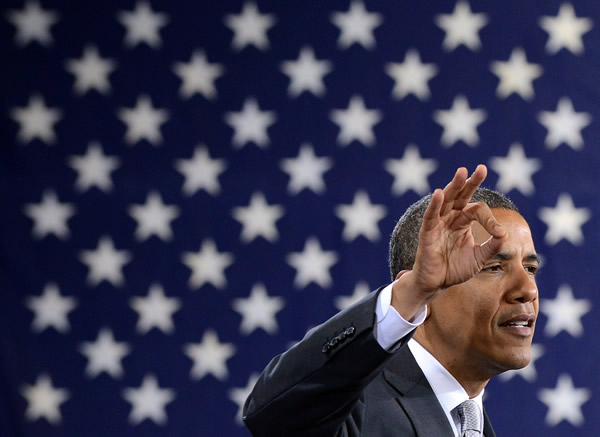Obama Fiscal Cliff Plan Silent on Payroll Tax Cut
Emily Goff /
This time last year President Obama said of the pending expiration of the payroll tax cut, “It may be that there’s [sic] some folks in the House who refuse to vote for this compromise because they don’t think that 40 bucks is a lot of money. But anyone who knows what it’s like to stretch a budget knows that…$40 can make all the difference in the world.”
The Administration rolled out a flashy campaign, asking middle-class Americans what $40 less per paycheck—the amount a typical family would lose if the tax cut expired—would mean to them.
Fast forward to the present, ever-changing fiscal cliff negotiations. This time the stakes are higher; as the Obama Administration’s My2k campaign warns, the typical middle-class family stands to lose $2,000 next year if Bush-era tax rates expire.
Obama’s mantra remains: “So my message to Congress is this: Pass a bill extending the tax cuts for the middle class; I will sign it tomorrow.”
The common thread in these episodes is the President’s apparently ironclad commitment not to raise taxes on the middle class. How curious, then, that a payroll tax cut extension is conspicuously absent from his latest fiscal cliff counteroffer.
Obama’s offer would extend marginal income tax rates for households making less than $400,000 (up from $250,000). It even includes $80 billion in stimulus for what would mark the umpteenth failed attempt to jumpstart the economy via government spending. But, alas for the middle class, his plan is silent on payroll taxes.
Obama’s payroll tax about-face begs the question: If $40 was real money and “could make all the difference in the world” last year, why is it not so this year? Families and businesses have been living under the ominous threat of Taxmageddon all year. The job market is still struggling, and many Americans have left the labor force. Economic growth remains sub-par.
As The Heritage Foundation has pointed out, extending the payroll tax would not create jobs, no matter what Obama says. Still, as a matter of responsible governing, Heritage recommended that Congress and the President extend all current tax policies, including the payroll tax cut, to avoid Taxmageddon. This would give the businesses and families the certainty they need and lawmakers time to work on comprehensive tax reform next year.
Now the fiscal cliff deadline looms, and the number of options available are shrinking. The least bitter alternative would be to delay all of the fiscal cliff’s scheduled tax increases and spending cuts—but only until the end of March, when a number of other budget and spending decisions will come to the forefront. Yes, it means the can is kicked down the road again, but lawmakers would be forced before too long to reach a solution.
That solution should not rely in the slightest on tax increases, because Washington has a spending problem, not a tax revenue problem. Instead, Congress and the President should propose meaningful entitlement program reforms—many of which enjoy bipartisan support—to get federal spending under control. Because the middle class, along with all other Americans, would benefit, then surely the President could get on board, too.

